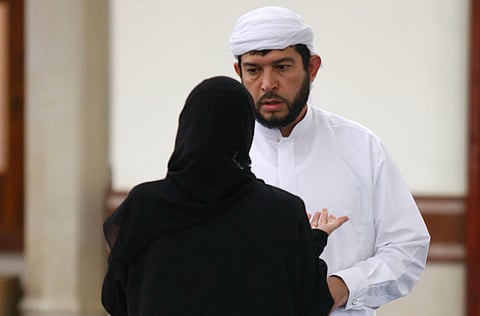Qatar to increase women’s participation in its workforce
Qatar expects female participation rate to reach 42 per cent by 2016

Manama: With Qatari women increasingly joining the country’s workforce, the National Development Strategy (NDS) 2011-2016 of Qatar expects their participation rate to reach 42 per cent by 2016.
Achieving that rate would mark a massive cultural shift in Qatari society and the government has initiated several measures to be ready for it, particularly through the 2009 Law on Human Resources Administration to improve women’s working conditions, the Gulf Times daily reports on Thursday.
The law includes provisions for a 60-day maternity leave, allots time (two hours per day for a year) for breastfeeding a baby and allows women with disabled children under the age of six to take extended care leaves.
Noting that the extent to which women are able to participate and remain in the labour market is intrinsically linked to the support available to help them balance family and professional responsibilities, the Qatari government has promised to improve support for working families, particularly for women, by expanding childcare facilities and family-friendly employment practices, and by encouraging gender-sensitive work environments.
The NDS says the increase in women joining the workforce is consistent with their rising educational attainments, and as learning opportunities continue to increase, women’s participation in the workforce will also go up.
Qatari women made up 27 per cent of the country’s workforce in 2001, gradually rose to 36 per cent in 2008 and remained steady in 2009.
However, the NDS says that while implementing measures to provide stronger social care for children and families and to strengthen marriages, the government must be aware of the delicate balancing act of preserving and enhancing traditional Qatari family values, while empowering women economically and politically.
The national vision calls for enhanced capacities and more prominent societal roles for women, and the NDS will seek to improve on the gains already made by women in recent years, the newspaper said.
The availability of high-quality, affordable and accessible child care is the most significant factor in improving the personal and professional balance for women, while a well-planned approach can contribute positively to the developmental outcomes for children.
Kindergartens and workplace nurseries are operational, but will be enhanced, while the number of private and public day nurseries and kindergartens, currently 137 private and 12 independent, will be increased.
Transferring the responsibility for day nurseries from the Supreme Education Council to the Ministry of Social Affairs will allow a more comprehensive plan to be created and implemented to improve workplace childcare.
New legislation will set minimum standards for nurseries and kindergartens and ensure proper staff qualifications, the strategy says.
The government also will build on best practices from other countries to adopt more family-friendly work measures, such as flexible time, part-time and special leave.
In addition, the work-life balance for women will improve as other NDS family cohesion outcomes are achieved, such as programmes to raise awareness on shared responsibility among family members, improved regulation of domestic workers and enhanced support systems for families with members who need special care.
The target is to put in place measures that support working women, including revising the current human resources law and the maternity leave policy.
Sign up for the Daily Briefing
Get the latest news and updates straight to your inbox



